James Angleton | 7 Types of Ambiguity
2011-09-26 02:05:00
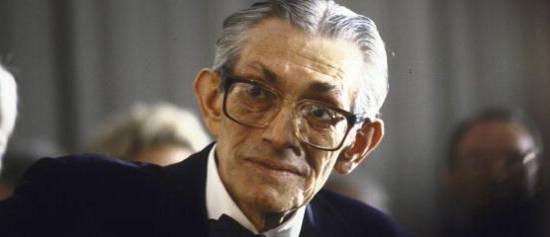
"Deception is a state of mind--and the mind of the state." - James Jesus Angleton
As the CIA's own website has the cunning arrogance to tell me: "...observers of the intelligence scene find James Angleton endlessly fascinating." Too true. Personally, though, what interests me the most is that with a small mountain of information available, none of it is believable. The man himself simply isn't there.
Vanished in a turn of phrase. Angleton is all fiction, these days. From Hollywood bastardization to the weird channeled communications with Michael Ledeen, ARTIFICE remains an inscrutable wall of impeccable forgeries. Largely, this is thanks to the CIA's enviable position as the primary author of it's own history.
"Counterintelligence is one of the most thankless jobs in spy craft. Its practitioners think the unthinkable, examining each operation, recruit or defector for the possibility that it may be a deception. Counterintelligence agents also try to recruit agents who work for hostile intelligence services, hoping to confuse opponents with cleverly packaged false information." - NYT 5/12/87
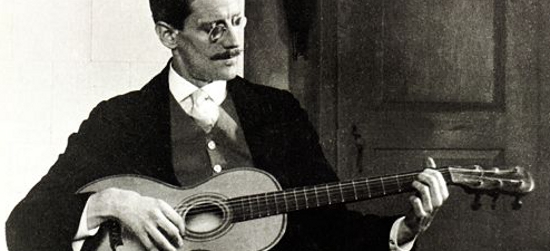
It is unknown at this time, for instance, whether James Angleton was really a devoted fan of James Joyce, or just wanted to cultivate that kind of image. It is worth noting that he himself prefered being simply James Angleton. His full name was evoked, over and over, by John Birch vintage right wing researchers to emphasize his suspect roots -- no different from the careful enunciation of Barack Hussein Obama today. It got picked up by less extremist researchers like Mae Brussell and Robert Anton Wilson, perhaps because of how acutely poetic the cadence of his full name sounds on paper...and today it sticks with him.
James Angleton was writing French poetry and hadn't even arrived at Yale yet when 7 Types of Ambiguity was published in 1930. According to the legend of James Angleton, though, his eventual discovery of that book was life-changing. The book is forceful, the work of a young, brash intellectual who wrote the thing at 22 years old and celebrated his first publication by drinking himself into a sex scandal that got him banished from Cambridge. As legends go, that's definitely a good start by William Empson.
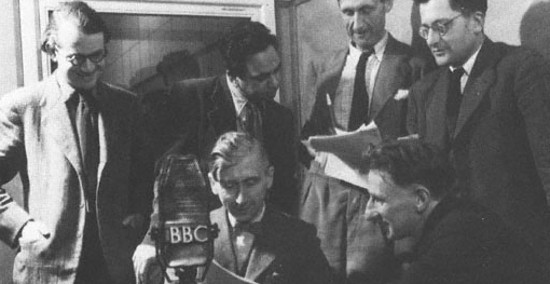
I suspect it's also a good start on understanding Angleton's disjointed body of work. I'm betting that his early years were real enough. I'm betting that he did read Finnegans Wake several times over, he did recieve several D's and F's while he was at Yale, and was profoundly influenced by Empson, as taught through the lens of professors Norman Holmes Pearson and Maynard Mack. I believe the story about James Angleton discovering his lifelong insomnia at Yale, too.
James Angleton led a long, strange life, though. There is entirely too much to be said about his legacy and legend, so I'm using Empson's book as a tool for orchestrating all this noise. A story in seven holographic slices, guided by questions of applied strategy, organization design, and unintended consequences.
Who has the time today to pursue the 10,000 networks that Angleton wove himself into? In fact, quite a few authors have devoted decades to exactly that, so I'm in no rush to replicate their work here. This is not about who James Angleton was so much as what James Angleton had to be.
1a. Comparative Metaphor
"Testing is a continuous process." - F M Begoum, Observations on the Double Agent
Counterintelligence work is insane. Let's start there. Critics who approach Angleton's work as merely "paranoid" are missing every available lesson on the buffet table. His job was paranoid. How he pursued it is an education.
"Russian spy schools know all about the CIA's use of lie detectors in personnel screening and could be presumed to have no trouble at all training infiltrators to outwit the machine. There is some ground to believe that Communist agents still are operating in American intelligence organizations and perhaps there are more of them than ever." - Stefan T. Possony, 1964
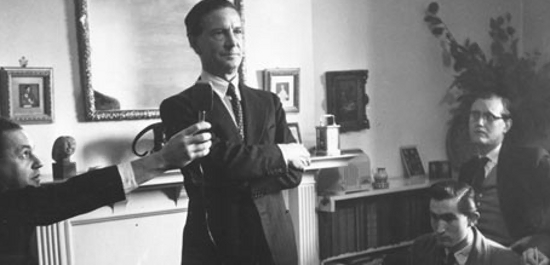
Who do you trust? Angleton was tutored by Kim Philby and Kim Philby turned out to be a traitor. As origin stories go, it doesn't get much more cinematic than that.
Kim Philby was an MI6 man, specializing in sabotage and counterintelligence. Philby and Angleton were drinking buddies, having extended martini lunches and cracking fabulously intelligent jokes. Philby would later write of Angleton, "he was one of the thinnest men I have ever met and one of the biggest eaters." Angleton never talked about Philby much.
The circumstances of Kim Philby's downfall would make for either a boring movie or a living nightmare. The man had titanium nerves, despite spending most of his career self-medicating with alcohol. He was part of a Russian spy ring that became known as the Cambridge Five, and it all fell apart in horrifying slow motion. It was 1949 when their covers began to unravel, yet Philby didn't resign from MI6 for another two years. He spent three more years in limbo before finally being cleared in 1955 by Harold Macmillan. It wouldn't be until 1962 that he was finally exposed.
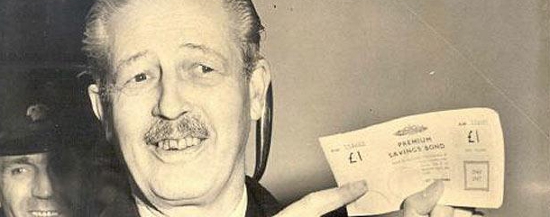
World War II had a lot of strange endings, though. Ezra Pound spent a few weeks living like a farm animal and getting his brain fried in the cages of Pisa. One of his critics -- an MP who supervised and escorted him around Italy -- rendered his verdict thus: "he is an intellectual 'crackpot' who imagined that he could correct all the economic ills of the world and who resented the fact that ordinary mortals were not sufficiently intelligent to understand his aims and motives." So many great intellectuals are like that: constipated and doomed. Rewind about 5 years, though, and you'll find Ezra Pound in New Haven, Connecticutt, being introduced by our protagonist, who arranged for him to come and read. Pound was treated like visiting royalty and maintained a correspondence with Angleton for years afterwards. Angleton learned a great deal about the world from Ezra Pound.
Especially the lesson about staying out of cages.

In the aftermath of V-Day, Angleton was hard at work networking his way through post-war Italy. Pound was en route to an asylum and Mussolini was a swinging corpse, but Angleton had HUMINT raw material to spare in those heavy days. He helped manage two programs to get highly-trained (and connected) Nazis out of Europe, or at least out of Israel's reach. One through the US Military, the infamous Operation Paperclip, and the other through the Vatican itself. He made a lot of introductions on behalf of Israel during those years, too, and built the core relationships that would keep him in charge of the CIA's Israel desk no matter who got nominally appointed in the decades to come.
Staying ahead of the curve -- every curve, really -- was Angleton's ultimate pursuit. The eye of the pyramid is a position that places huge demands on the operator. Between finite time and exponential complexity, Angleton was faced with steep transaction costs for every piece of information he processed. However, he had to weigh that against the equally steep security risks inherent in adding personnel or allowing his data stream to be filtered.
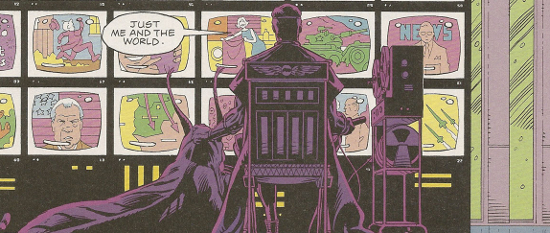
Allen Dulles and James Angleton agreed on a foundational principle: counter-intelligence, properly pursued, has to be proactive -- they inverted the Nazi OODA loop where CI agents were the cleanup crew. Instead Angleton became a ghost in the system, wired into the center of a Panopticon rendered in paperwork. He operated ahead of the conventional intel process, monitored all internal communications, and used a vast network extending far outside the official CIA to keep tabs on the entire Langley establishment. From raw SIGINT to Special Operations, Angleton was an invisible supervisor.
Most importantly, Angleton controlled the flow of NSA intercepts into the CIA and micro-managed the only team that was given access to this valuable raw feed: they were called Staff D.
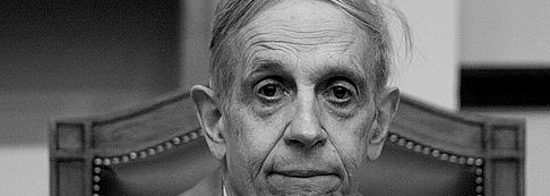
Everyone is a suspect. Everyone. It's easy for Normal Folks to dismiss the John Nash nightmare of Game Theory betrayal as "paranoid" from a safe, domestic distance, but what Nash outlined was a very real dilemma for counter-intelligence agents of any nation. The pursuit of "intelligence" places an inhuman burden on the secret police.
Despite all his tactical advantages, Angleton was still faced with an essentially impossible mission: Omniscience.
2b. Resolution
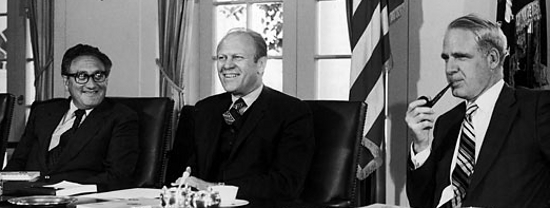
"The simple fact is that if Angleton wanted something done, it was done" - Tom Mangold
Angleton is perhaps best understood as the Patron Saint of Homeland Security. Compartmentalized secrecy, zero accountability, and access to everything. Yuri Nosenko spending almost 4 years in solitary confinement, undergoing beta version Enhanced Interrogation Techniques, was most definitely a precursor for the current situation in Guantanamo Bay and hundreds of other secret prisons around the world.
Then again, that's just a cheap literary device. It's unfair to the nuances of the truly Angletonian theory of Counterintelligence to presume that he would approve of a rush job as sloppy as DHS turned out to be. Consider the recent headlines declaring that over four million US citizens have classified clearances, and over a million of those are private contractors.
Angleton liked recursive loops. Within the Countertintelligence desk, Angleton ran an additional secret team named SIG -- Special Investigative Group. This alone is a beautifully pure illustration of Hagbard Celine's First Law: secret police within the secret police within the secret police. This kind of total freedom from scrutiny was essential to the proper practice of Power. "It is inconceivable that a secret arm of the government has to comply with all the overt orders of the government," he once remarked, and that simple binary trap was the source for most of Angleton's headaches.
To Angleton, Counterintelligence was clearly an artform, yet today it's practiced more like an ISO 9000 certification. The Black Arts have been templated and Taylorized into something so foolproof that any MBA can make it happen.
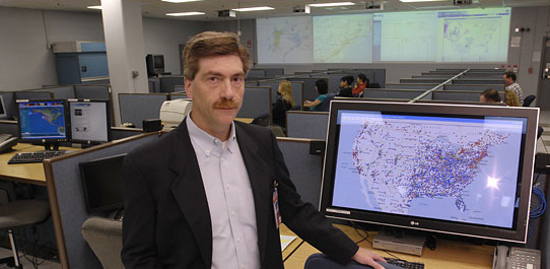
Consider Kenneth Senser, ex-CIA, ex-FBI, and currently running the counterintelligence division of Walmart Global Security, a group called the Analytical Research Center. As a matter of corporate rountine, he maintains a network of informants, disinformation agents and agent provocateurs within the ranks of the "Anti walmart Movement." All network and company computer activity is monitored via CoreView, some shit-simple automated surveillance software from Raytheon's Oakley Networks lab. He manages a staff of nearly 400.
Kenneth Senser routinely busts Walmart executives around the world, but actual law enforcement is hardly part of the Angleton Theory. Allen Dulles and James Angleton agreed on another foundational principle: counter-intelligence, properly pursued, was an esoteric pursuit that tolerated petty crimes in pursuit of cardinal sins. Clearly, everything from drug dealing to genocide qualified as petty crime in the face of the Communist threat.
For decades, when people went looking for power, they ran into James Angleton. Which is not to say they ever so much as saw the man -- just that they wound up on his radar screen and probably never knew how exposed they were. He occupied the crossroads between the Vatican, the Mafia, the Mossad, Shin Bet and the CIA. Like all espionage masters, he understood that secrets were best kept, period...best used for leverage, milked for intel, and only exposed as a regrettable last resort.
One of Angleton's greatest assets was his patience. He mastered the discipline that Bonaparte learned from French secret police pioneer Johseph Fouche: "Never interrupt your enemy when he is making a mistake." Where most agents would have made moves, Angleton was content to let operations unfold for decades, letting infiltrators live out their entire lives in secret service. James Angleton waited. He routinely ran operations so convoluted even insiders would find them too absurd to be real.
Before the convenient epithet of Conspiracy Theorist was in common usage, smug realists in the US, UK and Soviet intelligence community would label such intricate paranoia "Angletonian." The man didn't just become a legend, he became an adjective. Few among us could aspire to reach such heights.
3c. Context

"Literature must in some sense be believable, whereas experiences of human beings in fact develop beyond all powers of conjecture. Thus Social Literature is conventional, while History exceeds all limitations of common sense." - Albert North Whitehead
When US Army Sergeant Robert Lee Johnson got caught spying for the KGB, he'd been doing it for over a decade. Despite all of the hard work of Army Counterintelligence, Johnson only got exposed because his wife decided to turn him in. Years later, Johnson would find himself bleeding to death on the US Penitentiary floor in Lewisburg, PA. In one of those non-believable plot twists, he was stabbed by his own son.
James Angleton had nothing to do with Robert Lee Johnson, yet the Johnson case itself would later become a central detail in the Great Mole Hunt. The top minds in the National Security State agonized for years over two Soviet defectors, Yuri Nosenko and Anatoliy Golitsyn. One of the key data points was Robert Lee Johnson, so Angleton collected information on the case. To call it obsessive would be pulp cinema: it was simply his job.
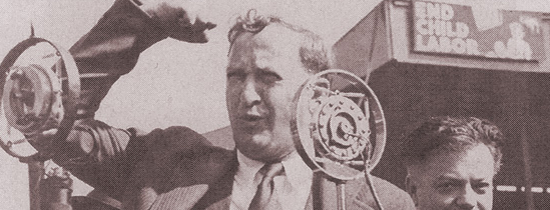
Jay Lovestone was a life-long Communist activist and organizer, who really started to shine in the early 1930's, when he pulled together a fragmented US Communist demographic into a cohesive party platform. He organized almost a dozen national worker's Unions, funded hundreds more on the local level, and became a powerful figure at the AFL/CIO until his retirement. He was reporting directly to James Angleton the entire time, keeping tabs on the movement as he worked his way to the top. History has no way of determining if Lovestone saw himself as an infiltrator or if Angleton had compromised him somehow, but when the "Lovestone Empire" spy ring was revealed, it dealt a serious blow to the organized Left in the United States.

As it turned out, the Lovestone Empire was anything but: just a small team, one of hundreds of covert networks tucked into the counterculture. Once Operation CHAOS got uncovered in the 70's, the American public finally caught a glimpse at how tremendous the scale of activist infiltration really was.
The entire project was overseen by Angleton himself, designed as a small labyrinth of frequently overlapping, strictly compartmentalized projects. Several of them, notably MERRIMAC and Project 2, were tasked with the long-term infiltration of "domestic antiwar and radical organizations." The budget was in the millions, the agents were in the thousands and the network is ongoing.
Most of the agents were never exposed. Which is perfect; the ideal outcome to ensure maxmium FUD. The resulting feedback cycles of accusations and paranoia have been crippling the international social justice movement ever since.
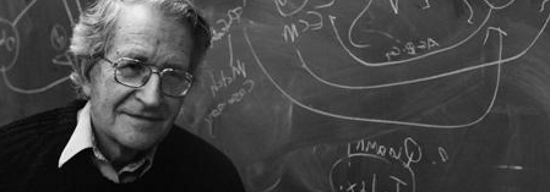
Which is not to declare any victories for James Angleton. The greatest adversary of any progressive movement is simply human nature. Also, most CIA conspiracy narratives paint the agency as far more powerful than operational reality permits. Espionage work is difficult because the raw material is volatile, hard to measure accurately and impossible to predict. Human beings are buggy technology, so Angleton had to keep a fairly massive rolodex and travel in circles far afield from the Ivy League bubble of Langley.
As he slyly said to Seymour Hersh: "A mansion has many rooms." Even a basic tour of Angleton's mansion is absurd, in terms of sheer diversity, and in terms of heavy implications for hidden history. George DeMohrenschildt, Reinhard Gehlen, E. Howard Hunt, Roger Hollis, Frank Wisner, Klaus Barbie, Luigi Gedda, Ted "Blond Ghost" Shackley, Raymond Rocca...at every turn, another great damn book waiting to be written.
Angleton encouraged extremes. This is reflected in his legacy, where authors either pile on praise or denounce him as a criminal, but in either narrative he remains The Mastermind. This strategy of tension, more than 20 years after his death, rages on. Still: out here in the information vaccuum created by CI/SIG, it's altogether too easy to give Angleton more credit than the man deserves. In the absence of evidence, his legacy grows into a fiction the second you start to contemplate it.
One area where Angleton is surely afforded too much credit: his "Theory of Counterintelligence," which was very much WWI era technology and 100% British, too. Angleton's operation was essentially the template laid down by the original Coordinator of Information, Bill Donovan. Even here at the beating heart of Angleton's legacy, there's nothing there.
4d. Complexities
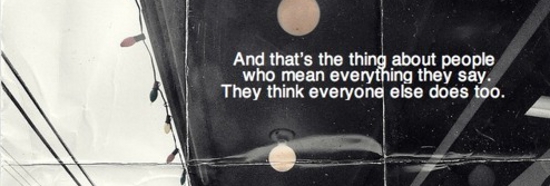
Angleton was not born into a normal life. He grew up in the network that would later become the P2 Lodge, where Italian fascism and Vatican intellectuals overlapped, the piously militant bloodlines traced by the Knights of Malta. He inherited his Italian network, but he surely earned his connections with British and Israeli intelligence. The trajectory of his career makes it clear Angleton was more than fortunate, he was a natural. Still, some authors call it genetic...
Doug Henwood: "Intelligence ran in Angleton's blood; his father, James Hugh Angleton, headed the National Cash Register franchise in Italy; in the course of visiting NCR's European operations, he set up his own amateur spy operation, which was of benefit to the United States when the war broke out. Angleton padre was a Mason, and a professed admirer of Italy and Germany in the 1930s."
Angleton is deeply mysterious, but that's a projected image, a studied pose. It's worth considering that Angleton made himself scarce because in person, the puppet master was socially awkward and downright transparent. As Amos Manor would later observe: "...he was fanatic about everything. He had a tendency toward mystification."
Despite that, Angleton made it a point to appear when and where it really mattered. He understood that his longevity within the agency depended on his direct involvement with contacts. Despite the culture of cut-outs, Angleton built his espionage network on personal relationships, and he defended these relationships from scrutiny by rendering them state secrets.
Despite the analytical (and critical) bent of Angleton's approach to uncovering spies within the ranks, later decades would bring a more qualitative touch to the process. In 1990, the CIA wrapped up Project Slammer, a long-term study in the motivational psychology of traitors and moles. Their conclusions were stark: "Heavy drinking, drug dependence, signs of depression or stress, extramarital affairs and divorce could be warning signs of a security problem." In the aftermath of cases like Aldrich Ames and Jonathan Pollard, investigations turned up simple behavioral cues that were ignored by co-workers and supervisors.
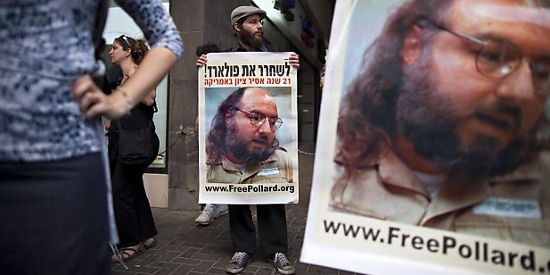
Consider Jeffrey Carney, desperate to get caught, stuck in a bad movie: "I was ostensibly trying to further my education and get the big picture," Mr. Carney said. "I was putting my nose in books where I didn't belong...talking to people, gathering information from conversations. It was actually very obvious, I felt. Somebody should have noticed. I took a huge document and another huge document with me, went across the hall into an unsecured room, laid the documents out on the table, secured everything, and had my camera ready, and started photographing..I was walked in on two times while I was photographing. . . . My face went red as a beet because my blood pressure was unbelievable, and the people went, 'Oh, excuse me, I didn't know you were busy.' And they turned around and walked out."
Internal culture is just as dangerous as any external threat. Angleton couldn't help but view the domestic press as an enemy -- he didn't even trust most of the CIA. His job description forbade it. He was engaged in a starkly simple game where most of the world was his adversary.
5e. Fortunate Confusion
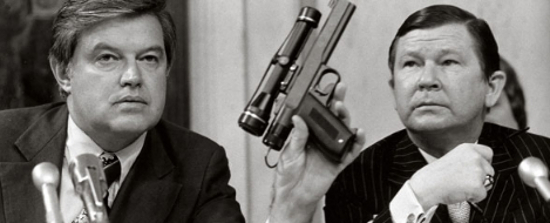
"We've arranged a civilization in which most crucial elements profoundly depend on science and technology. We have also arranged things so that almost no one understands science and technology. This is a prescription for disaster. We might get away with it for a while, but sooner or later this combustible mixture of ignorance and power is going to blow up in our faces." - Carl Sagan
Word salad. There is no history here, only leftovers. Today's generation knows James Angleton by different names: Matt Damon, Michael Keaton, or The Cigarette Smoking Man. The Narrative is always a study in why men do horrible things in the name of noble goals.
The myth of James Jesus Angleton is only this: that he had to exist. Even agency history concedes his paranoia and ultimate failure. He is justified, legally and historically, by the principle of national security. As his champions with high clearance levels can always claim, it's what we don't know that proves Angleton right. Thanks to his heroism, we will never know how much we should be thanking him for. There's also other interpretations. When it came to Angleton's artistic legacy, most of his fiercest critics were his own colleagues by the end.
William Colby: "I determined a long time ago I had to get rid of him, and the question was how. I found several hundred people in there. I honestly couldn't figure out what the devil they were doing...I couldn't find that we'd identified any penetrations. And I concluded his work had hampered our recruitment of real agents. We weren't recruiting any because of the negative effect of the super-suspicion."
James Angleton has every legacy: take your pick. MKULTRA controller and sad paranoid headcase. The Mafia consigliere, the Vatican agent, the Company man. He is a true believer and a cynical manipulator, the ultimate insider and the stereotypical outsider. Angleton's keywords have all been woven into the UFOlogy mythos that centers around the Majestic 12 documents. It is remarkable how many key players in the JFK Assassination got written into that whole script: David Ferrie, Fred Crisman, Art Lundahl, John Paisley, and the fabulously unreal Gordon Novel, who rode out the 80's doing counterintelligence work for Larry Flynt, of all people.
Further memetic noise comes from Michael Ledeen, a careful student of Gladio and the Strategy of Tension, and one of the Great Architects behind both Team B and The Vulcans. In his column for the American Enterprise Institute and on several other blogs, he will regularly publish conversations with Angleton's ghost, channeled via Ouija board. I am sure there are already conspiracy forums unpacking the intricacies of Angleton's opinions on Osama Bin Laden.
I mention all this only in the interest of applied physics. The event horizon of history is about to close on Angleton's legacy as pop culture continues to digest him into the Spectacle and his last living accomplices, victims and witnesses finally die. It's a new day in America.
6f. Invented Interpretations
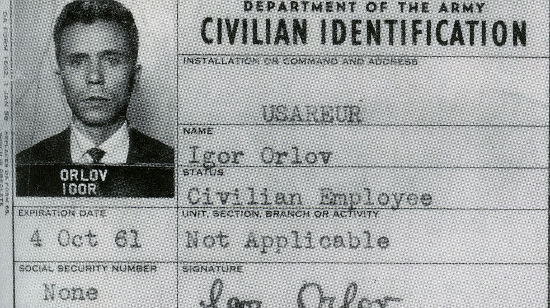
"Angletons principal concern was not with "moles" per se, but with the inherent vulnerability of intelligence services to systematic deception. To him, "moles" were a means to this end if, and only if, they were in a position to provide timely feedback to an adversary about what channels his intelligence service were monitoring and how it is was interpreting the data it was intercepting. With such a feedback loop in place, he believed perfect deception was possible." - Edward Jay Epstein
Strangely, effective Counterintelligence operations are totally indistinguishable from normal life. People of all ideological backgrounds are quite industrious at foiling their own plans, exposing their own secrets, derailing their own investigations...it is significant that a useful idiot can be every bit as effective as an actual trained asset. Gallows humor in the control room as the masters of the universe play cards and smoke cigars. And wait.
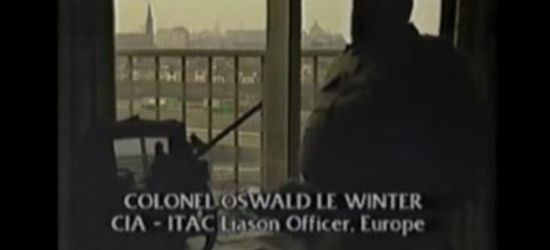
Consider the case of Oswald Le Winter. The man is apparently real, a professor and poet, but his primary occupation would appear to be running disinformation on orders from the CIA. At least, that's what he says. He has claimed to be a NATO liason officer for the Gladio program and a former agent of the CIA, and troublingly, he has also claimed that he's targeted journalists with deliberate disinformation "leaks" in campaigns that lasted for years and paid $100,000 per gig. His testimony is an integral part of the BBC's Timewatch trilogy on Gladio, yet even by his own admission, he was working to disrupt investigations into both the murder of Olof Palme and October Surprise saga.
Oswald Le Winter is an article unto himself, and only a single asset, one of hundreds feeding mystery meat into the sausage grinder of History. The CIA doesn't write history -- that kind of naked power is crude, too lowbrow for the Yale crowd. Angleton reached out to several authors in order to help sculpt his own legacy through selective leaks. This was years after he'd begun planting conflicting narratives through agents like Le Winter, Ledeen, or assets like William F. Buckley and Dr. Leary. This was years after he'd finished planning his countermeasures for the key vulnerabilities in his record. He never forgot the last lesson of Ezra Pound.
So most of what we know about Angleton was carefully orchestrated and scripted by the man himself. In all probability, this includes most of the "dirt" and apparently incriminating data points.
7g. Contradiction
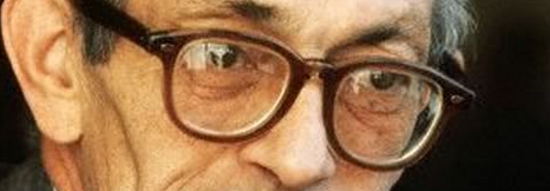
"Actually, I didn't know whether to believe Angleton at all." - Epstein again
No final word on Angleton's legacy, of course. The final consideration is that Angleton himself was a mole: one of his own disciples concluded as much. As for a final verdict on his technique, history appears to be on the Kingfisher's side. Epstein makes a good case, though it does boil down to the Broken Clock Principle. The existence of any moles in the FBI and CIA would be enough to validate Angleton -- surely that's setting the bar on intellectual achievement a little too low, even by American standards. And let's not forget, despite his pivotal role in US history James Angleton was very much an Italian.
"Persons having the deepest and most legitimate insights into intelligence matters are most scrupulous in their trusteeship of such knowledge and that the penchant for sensational revelations is the near monopoly of the charlatans and pretenders who scavenge along the flanks of the intelligence enterprise." - Frank Wisner
While most accounts end with Angleton leaving the Agency in various stages of defeat on Christmas Eve, 1975, even Langley will cheerfully admit that ARTIFICE was re-activated pretty much as soon as Ronald Reagan got elected back in November 1980. The call came from Willam Casey, who was the next Director of Central Intelligence and getting his team up to speed for the transition. All that Jimmy Carter, Stansfield Turner transparency crap was being liquidated through out the chain of command. Operation Cyclone was kicking back into high gear, and Angleton returned as a consultant. Whether this position was active counterintelligence work, or just a pension gig to keep the old master on campus, I will leave the guesswork to you.
Curiously, Angleton may be his own worst critic; so if we must finish, let us finish there. Joseph Trento insists that James Jesus Angleton confessed and Confessed and I haven't seen these quotes disputed yet. If genuine, they're fucking remarkable:

"You know how I got to be in charge of counterintelligence? I agreed not to polygraph or require detailed background checks on Allen Dulles and 60 of his closest friends. They were afraid that their own business dealings with Hitler's pals would come out. They were too arrogant to believe that the Russians would discover it all. You know, the CIA got tens of thousands of brave people killed. We played with lives as if we owned them. We gave false hope. We - I - so misjudged what happened."
"Fundamentally, the founding fathers of U.S. intelligence were liars. The better you lied and the more you betrayed, the more likely you would be promoted. These people attracted and promoted each other. Outside of their duplicity, the only thing they had in common was a desire for absolute power. I did things that, in looking back on my life, I regret. But I was part of it and I loved being in it... Allen Dulles, Richard Helms, Carmel Offie, and Frank Wisner were the grand masters. If you were in a room with them you were in a room full of people that you had to believe would deservedly end up in hell. I guess I will see them there soon."

"...the poem is not good in spite of but especially because of its moral confusions, which ought to be clear in our mind when you are feeling its power. I think it horrible and wonderful; I regard it as like Aztec or Benin sculpture, or to come nearer home the novels of Kafka, and am rather suspicious of any critic who claims not to feel anything so obvious." - William Empson, Milton's God